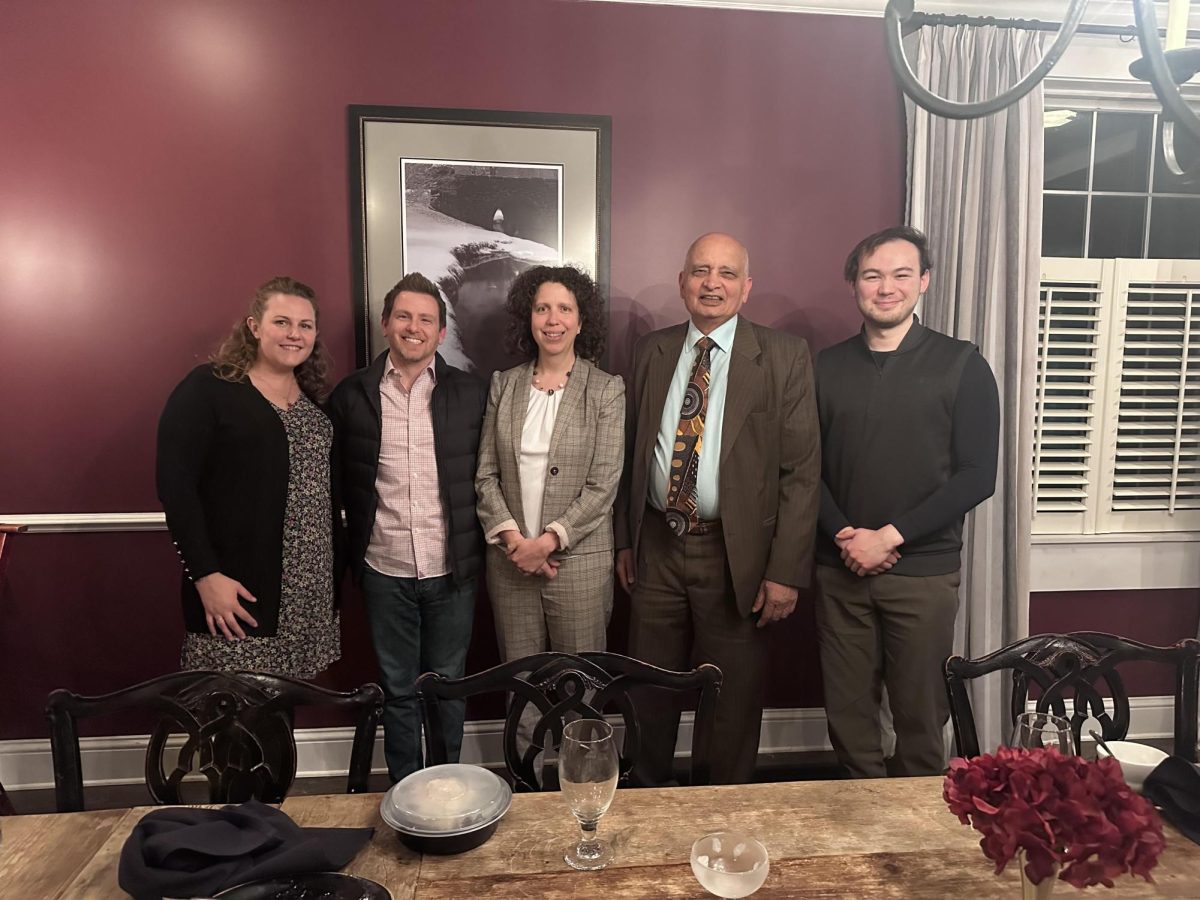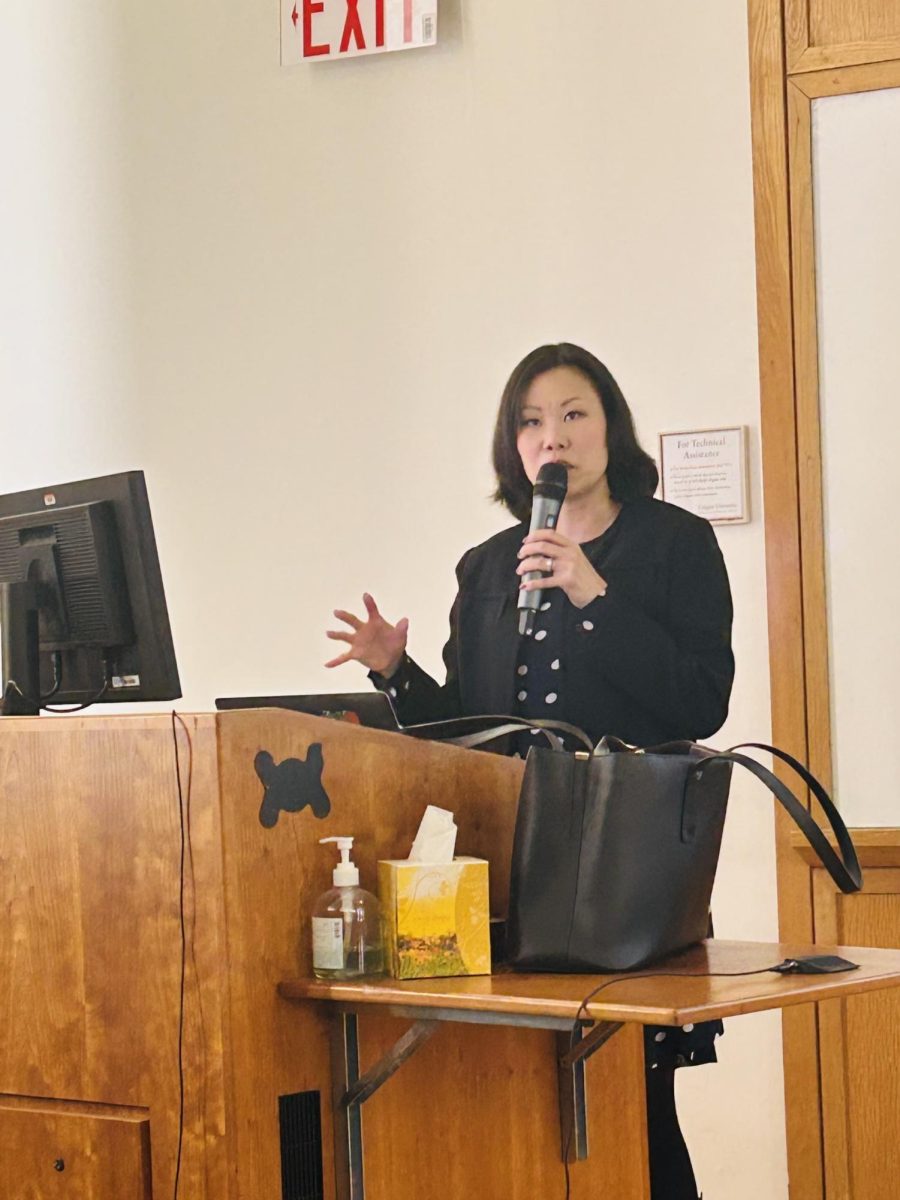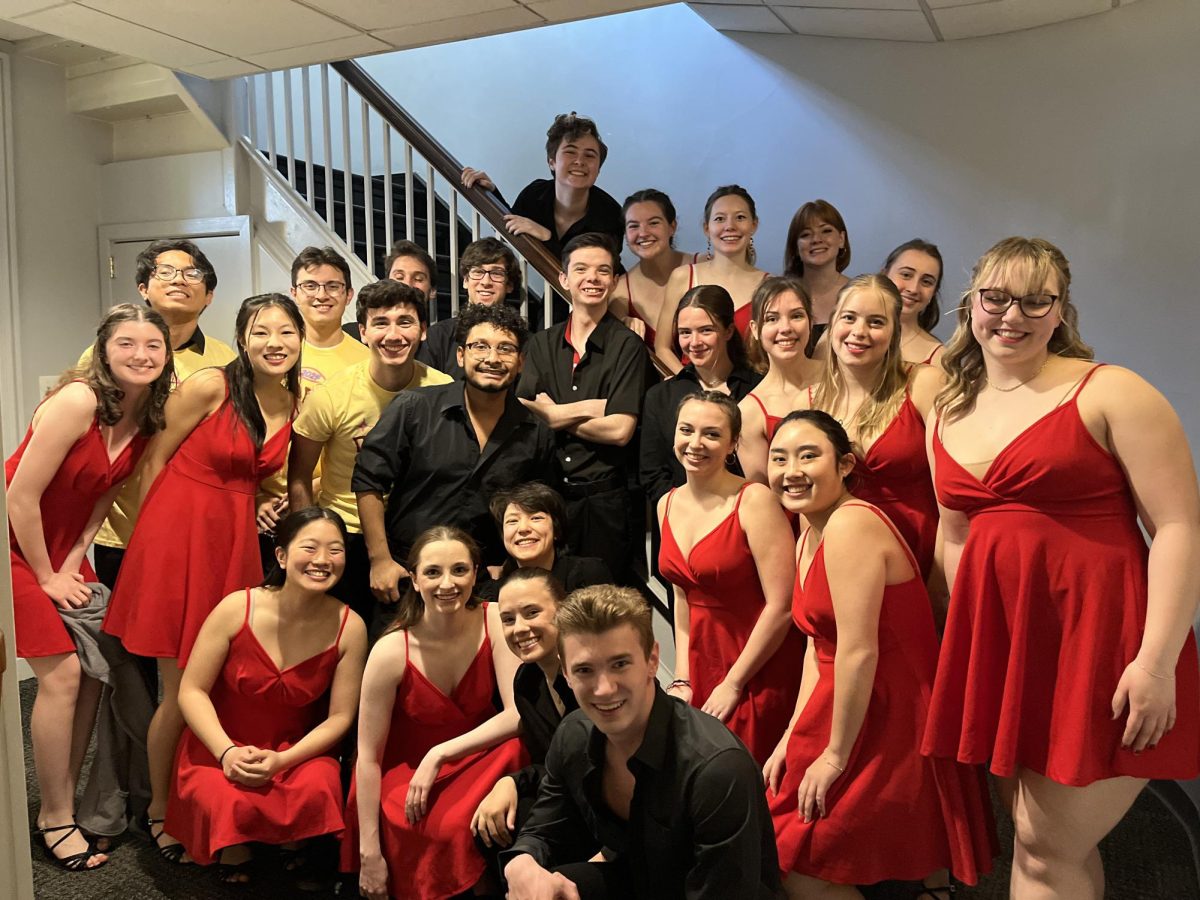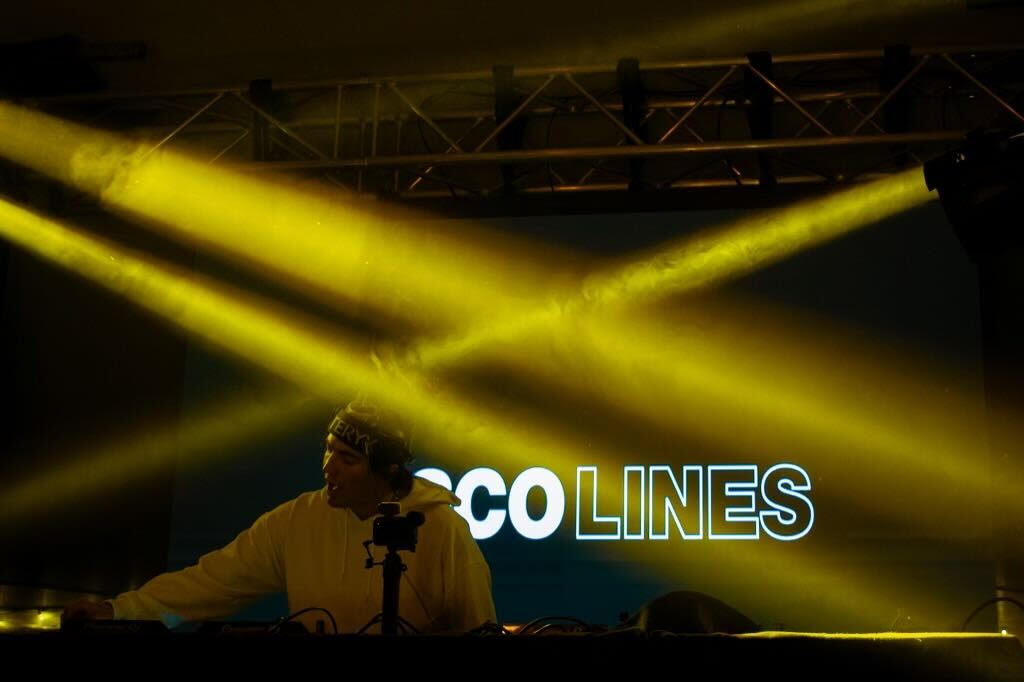Professor Daniel Ziblatt of Harvard University delivered a lecture discussing his latest book, “Tyranny of the Minority,” to a filled Persson Auditorium on Tuesday, Oct. 17. Sponsored by Colgate University’s Lampert Institute for Civic and Global Affairs, the lecture analyzed some stubborn challenges that American democracy faces amid the current social and political landscape.
“Really, the point of this book is to try to come up with an account of what’s gone wrong in American democracy and how we can get out of the mess,” Ziblatt said.
The Director of the Lampert Institute, Associate Professor of Political Science Illan Nam, introduced Ziblatt and later spoke about the process of bringing him to Colgate after having read his previous books on state-building and American democracy.
“I invited Professor Ziblatt to speak at Colgate because he is an esteemed and thoughtful scholar of comparative politics who has written important works on democratization and state-building,” Nam said. “Although he is a student of Europe, he drew upon a deep knowledge of these political societies – in particular, the response of political elites to mass suffrage, to shed light upon contemporary American democracy. His ability to identify patterns that emerge across countries and time showcases the power of comparative analysis.”
During the lecture, Ziblatt noted that the breakdown of American democracy is “a bit of a puzzle.” In the context of comparative politics, a democracy as rich and old as the United States should not be so vulnerable, he argued.
“In our book, we emphasize two main culprits: the radicalization of the Republican Party and […] a set of political institutions that we think are making the problem worse,” Ziblatt said.
In a healthy democracy, Ziblatt suggested that party leaders must accept election results, condemn violent attempts to maintain power and break ties with extremists. In rejecting these norms, Ziblatt argued that Republicans within the American government have become “semi-loyalists” who tolerate anti-democratic behavior when it becomes politically convenient.
“In that process, they become indispensable partners in [democratic] decline,” Ziblatt said.
Ziblatt described feelings of “status loss” as a key variable that allowed these changes to take root.
“Parties are more likely to turn against democracy when they and their constituents feel like they face an existential threat,” Ziblatt said. “In other words, it’s kind of an outsized fear of losing that turns a party away from democracy.”
Ziblatt drew comparisons between modern anti-democratic shifts in the Republican party and the similar behaviors of the post-Civil War Democratic party. Although not as extreme, he noted, parallels exist between the fast-paced demographic changes in both eras that could help to explain the two parties resorting to behavior that harms democracy.
“The United States is [currently] undergoing a transition that no other democracy has really successfully undergone, one in which a long-standing, dominant ethnic majority loses not only its numerical majority, but also its dominant status in society,” Ziblatt said.
While the rise of a radical, far-right minority is fairly common in democracies, Ziblatt described how the unique political systems and institutions of the United States have amplified and protected political minorities. When a political minority promotes authoritarianism, he noted, protecting them can be dangerous to democratic values.
Ziblatt clarified that some issues, such as maintaining legitimate electoral procedures and protecting civil liberties, should remain constant no matter which group holds power. At the same time, he noted that the majority should, based on the principles of democracy, have the right to win elections fairly and legislate functionally. Ziblatt then classified some U.S. processes and institutions that seek to protect minority opinion — including the filibuster, Electoral College, a mal-proportioned Senate and a powerful Supreme Court — as antithetical to these principles and, therefore, harmful to American democracy.
“Concessions and compromises and improvisations [within the U.S. Constitution] built bias into our political system in which small and sparsely-populated territories were overrepresented,” Ziblatt said. “It’s really only in the 21st century that U.S. parties have split along urban [Democratic] and rural [Republican] lines. […] Given the institutional bias in rural areas, not only is our system biased: it gives [Republicans] systematic advantage in the Electoral College, Senate and the Supreme Court, which allows [them] to hold national power without winning electoral majorities.”
This anti-democratic system, Ziblatt argued, has led to a widening gap between national policy outcomes and public opinion. He gave the examples of gun control and abortion, which both retain support from a healthy majority of Americans even as related legislative policies remain stagnant — or, occasionally, are revered — in all three branches of government.
Even amid this disjuncture, Ziblatt explained some possible paths forward, such as diminishing Senate power, reapportioning the House of Representatives, implementing term limits on Supreme Court justices and eliminating the Electoral College. He added that while amendments to the Constitution have stalled since the 1970s, they have historically made the U.S. more democratic and could continue to do so with enough public and political mobilization.
“These changes only came […] because people worked very hard to put pressure on political leaders to make these kinds of reforms,” Ziblatt said. “Americans have a very long tradition of amending the Constitution to make our democracy better […]. We’re engaging in an incredibly radical experiment of not updating our Constitution, and I think what we see today is the result of that.”
Audience members had the opportunity to ask questions following the lecture.
After organizing the event, Nam commented on her wish that students walk away with a new understanding of the topics that Ziblatt addressed.
“I hope his account of how various political institutions in the U.S. produce outcomes at odds with majority preferences — or, as the book title suggests, the tyranny of the minority — stimulated Colgate students to examine whether they find this a persuasive analysis of the state of American politics or not,” Nam said.
Junior Rania Chowdhury, who attended the event, noted how Ziblatt’s analysis forced her to confront many of the uncomfortable realities about the structures of American democracy.
“Acknowledging the anti-majoritarian mechanisms built into our government can be intimidating. That being said, I believe that Ziblatt’s work can provide meaningful insight and potential solutions to the problems he elucidates,” Chowdhury said. “Ziblatt’s diagnosis and remedy to the dilemma American democracy faces is remarkably focused and elegant.”
As the Q&A session closed, free copies of “Tyranny of the Minority” were made available to attendees, which Ziblatt offered to sign afterward.














